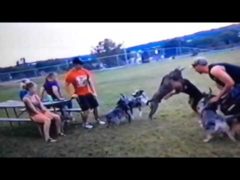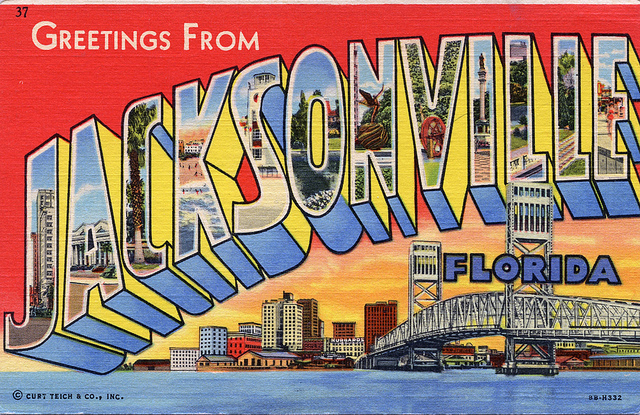
This is often what ‘socialization’ leads to.
Think about the root of that word for a second. Social. It means “relating to society or its organization.” Socialization is the process whereby we adapt to society. In modern dog training that means putting dogs together as a prerequisite to acceptable social behavior. This is an example of editing reality to promote an agenda.
The assumption that socialization is automatically beneficial requires evidence that is not currently provided. If a dog has a good dose of genetically transmitted aggression, interaction with other dogs will trigger that behavior. More interaction means a faster ‘ramp up’ to skills associated with fighting. That is because normal, adult canines have to be able and willing to viciously fight at the drop of the a specific trigger. To ‘not fight’ is the anomaly for all canids. They fight BECAUSE they have been socialized, which elevates them to a fully adult repertoire. It’s like a terrier that kills it’s first rat, a Cattle Dog that heels it’s first cow and a pointer that points its for bird. No bird, no point. Birds ’causes’ pointing. More birds, more points.
What this really means is that the person blindly promoting ‘socialization’ is giving a one-dimensional view of dogs. That view ignores developmental processes that occur at puberty and later during full maturation. Dogs that are friendly as juveniles may become seriously dangerous dogs as they mature, regardless of how much they were socialized. Fully adult dogs may be passive around the vast majority of dogs and have an attitude about a single dog.
To see this clearly, consider ‘leg lifting’ as a metaphor. One day the dog is squatting to pee and then, suddenly, it lifts its leg. Socialization has no influence on that. Dogs that have been around other dogs graduate to leg-lifting and dogs that have never been around other dogs lift their legs at about nine months, too. If socialization is a prerequisite for having a well behaved dog, why doesn’t it work on such a passive, genetic trait?
Now we get to a big point. Socialization is promoted either implicitly or explicitly as a preventative fix for aggression. It is promised by people who do not know how to control aggression. I know that because the rule in day-care is that if a fight breaks out, the dog is banned. Think about that. A dog is in day-care for months as it matures and yet, one day, picks a fight. This mirrors the developmental behavior of leg lifting. One day it’s not there, the next day it is.
The only difference between aggression and leg-lifting is that if the dog lifts its leg at daycare, they clean it up. What they do not suggest is ‘more socialization’ to return the dog to a juvenile state of squatting to pee. That is because there is no connection between socialization and arrested development. You can’t turn the clock back. It won’t work with leg lifting and it won’t work with humping or fighting. Any rational person realizes that developmental behaviors are simply a matter of time. Once those behaviors wake up, you can’t put the genie back in the bottle. (Yes, that is a mixed metaphor) Guess what wakes them up? Socialization.
The More Important Component: Do the right things.
Male dogs that I own do not lift their legs, intact or not. They don’t fight, intact or not. They don’t attack other dogs whether they have been broadly socialized or not. I can extend those statements to my clients’ dogs if they ask in advance for those outcomes. This is regardless of socialization. My job is to sculpt a dog’s repertoire and give them a life devoid of problems. Socialization doesn’t do that. Planned, controlled training does that.
 We are going to have a blast in Jax! For those of you who don’t know what to expect, take a look at these links. They will give you a taste of construction tools that can dramatically improve performance for working and sport dogs. Contact Anne Baxter in Facebook or go to Dog Obedience Group of Jax anne@dogofjax.com
We are going to have a blast in Jax! For those of you who don’t know what to expect, take a look at these links. They will give you a taste of construction tools that can dramatically improve performance for working and sport dogs. Contact Anne Baxter in Facebook or go to Dog Obedience Group of Jax anne@dogofjax.com
